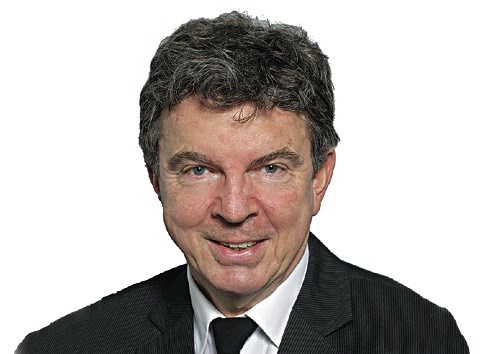Catalyst Paper will try next week to elbow its way in to the election campaign by presenting its electricity bill as a key coastal issue.
Good luck with that. It’s important to the company, but it’s a sensitive, tricky issue and it’s probably not one that Premier Christy Clark and Opposition leader Adrian Dix want to dwell on.
Catalyst CEO Kevin Clarke announced this week that he’s leaving the post in June. He plans to go out with one more political push, similar to the one staged when he was fighting through creditor protection last year and looking for government help.
Letters will go to candidates in six ridings where Catalyst operates, outlining Clarke’s views on the next crisis facing the paper company: the potential for big increases in its already huge electric bill.
Read more election coverage HERE
Clark and Dix have already received the letters, copies of which were shared with the Times Colonist. In them, CEO Clarke says all the savings the company achieved through municipal tax cuts and wage rollbacks could be wiped out by the potential hike.
“I’ll be taking action to ensure [the issues] form part of the dialogue during the election. … If left unresolved, [they] pose very real employment and economic sustainability challenges to any B.C. government.”
Catalyst — with three big mills in Powell River, Port Alberni and Crofton — is B.C. Hydro’s largest single industrial customer, and Clarke said they paid $100 million for power two years ago. That bill will climb to $127 million this year for two reasons, according to his calculations. The first is his estimate of a rate hike, and the second is the return to the PST. Under the HST, commercial electricity customers got a break on their tax bills. That ended when B.C. returned to the provincial sales tax this month.
Returning to the PST adds $8 million to Catalyst’s Hydro bill, Clarke said. That wipes out much of the savings the company negotiated by way of concessions from employees and pensioners.
“The combined effect of PST and hydro rate hikes erases financial sacrifices made by our hourly workers, pensioners, our communities, investors and small suppliers during the 225 days we spent under [creditor protection].”
His preliminary analysis of Hydro’s service plan suggests the electricity bill could jump to $150 million in the next three years. His numbers have been disputed in the past by the government.
“Unfettered rate increases are no more sustainable for Catalyst Paper than they are for any B.C. manufacturer competing in global markets,” Clarke told the premier.
But now isn’t the time for candidates to get into an argument about potential rate hikes with a firm that accounts for about 7,000 direct and indirect coastal jobs.
What does he want? An exemption from the seven per cent sales tax on electricity (B.C. is the only jurisdiction that charges it to industry) is the first item.
Clarke said he wants to brief the leaders on an “intergovernmental infrastructure-sharing” idea that would link all the municipalities that host paper mills. He also wants a designated contact person in the premier’s office to deal with the firm and settlement of tax appeals that stretch back years.
Both leaders will be wary. Premier Clark’s government had a difficult time dealing with Catalyst last year. The CEO publicly slammed her jobs minister and felt shorted by the minimal help the government offered during that crisis.
The Liberals refuse to subsidize individual firms, so a specific break on the electricity bill is unlikely. And a general break for all industry would be expensive.
Dix showed up at the ceremony a few months ago when Catalyst returned to the Toronto Stock Exchange. So he’s on better terms with the company than Clark is at the moment. But only because he hasn’t had to argue with the company yet over the help it needs. And he and his party campaigned actively against the HST, which saved the firm millions.
The NDP has spent the first week of the campaign dodging firm commitments on specific issues, saying all such questions would be put “under study.”
Clarke portrays the company as holding its own in the world market, but beset by “made-in-B.C.” problems that need fixing, fast.
He might get some made-in-B.C. sympathy from the candidates during the campaign.
But not much else.



